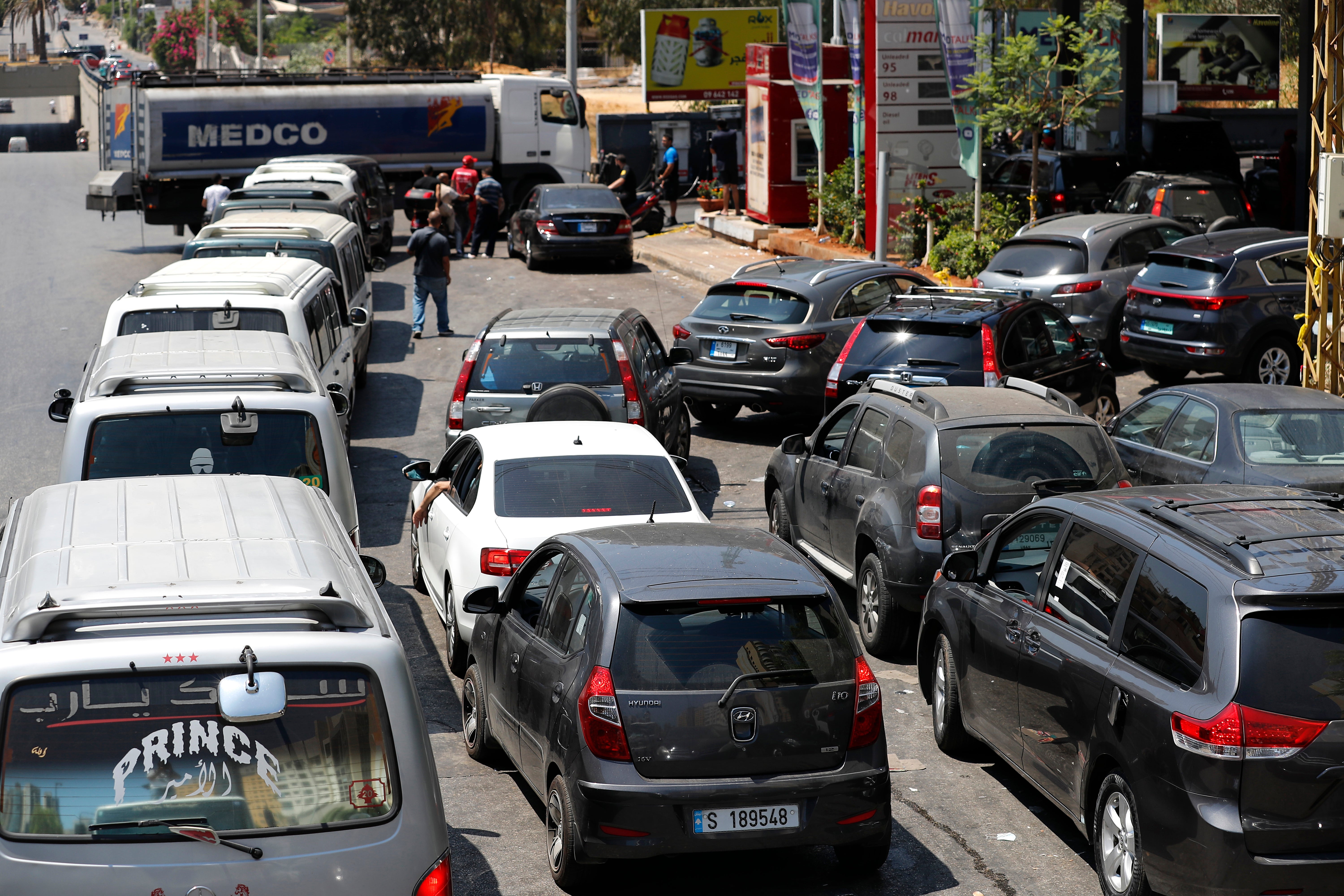Lebanon reduces fuel subsidies amid gasoline shortages
Lebanon’s caretaker prime minister has granted his approval to allow the financing of fuel imports at a rate higher than the official exchange rate

Your support helps us to tell the story
From reproductive rights to climate change to Big Tech, The Independent is on the ground when the story is developing. Whether it's investigating the financials of Elon Musk's pro-Trump PAC or producing our latest documentary, 'The A Word', which shines a light on the American women fighting for reproductive rights, we know how important it is to parse out the facts from the messaging.
At such a critical moment in US history, we need reporters on the ground. Your donation allows us to keep sending journalists to speak to both sides of the story.
The Independent is trusted by Americans across the entire political spectrum. And unlike many other quality news outlets, we choose not to lock Americans out of our reporting and analysis with paywalls. We believe quality journalism should be available to everyone, paid for by those who can afford it.
Your support makes all the difference.Lebanon’s caretaker prime minister on Friday granted his approval for financing fuel imports at a rate higher than the official exchange rate, effectively reducing critical fuel subsidies amid worsening gasoline shortages.
The decision is likely to sharply increase the price of gasoline - but is expected to temporarily ease the shortage crisis in the country. Lebanon is going through an unprecedented economic and financial collapse coupled with a dangerous political crisis. The developments pose the gravest threat to the small country’s stability since the end of its civil war three decades ago.
The currency has lost more than 90% of its value since October 2019, trading at a record low of 16,450 Lebanese pounds to the dollar on the black market on Friday. The official exchange rate remains 1,507 Lebanese pounds to the U.S. dollar.
The crisis, rooted in decades of corruption and mismanagement, has worsened in recent weeks with the central bank cutting back on financing imports at subsidized dollars. Foreign currency reserves have dropped dangerously low, from $30 billion at the start of the crisis in late 2019, to nearly $15 billion currently. That has prompted merchants to either raise prices or stop imports.
In the past weeks, fist fights and shootings have broken out at petrol stations as frustrated citizens lined up for hours to fill up their tanks. Electricity cuts last for much of the day, and private generators have had to turn off for several hours to ration fuel.
The decree signed by caretaker Prime Minister Hassan Diab Friday allows the financing of fuel imports at an exchange rate price of 3,900 Lebanese pounds instead of the official peg of 1,500 pounds.
While that may temporarily ease the fuel shortages by allowing supplies to flow in again, the move effectively raises the price of gasoline and is sure to send prices of consumer goods further skyrocketing.
In a statement, Diab said he made the decision “guided by his sense of national responsibility.”
The decision “aims at securing fuel for citizens for the next three months, especially as the summer season is approaching, which will allow the increase of the U.S. dollar flow to Lebanon with the arrival of expatriates and tourists,” the statement said.